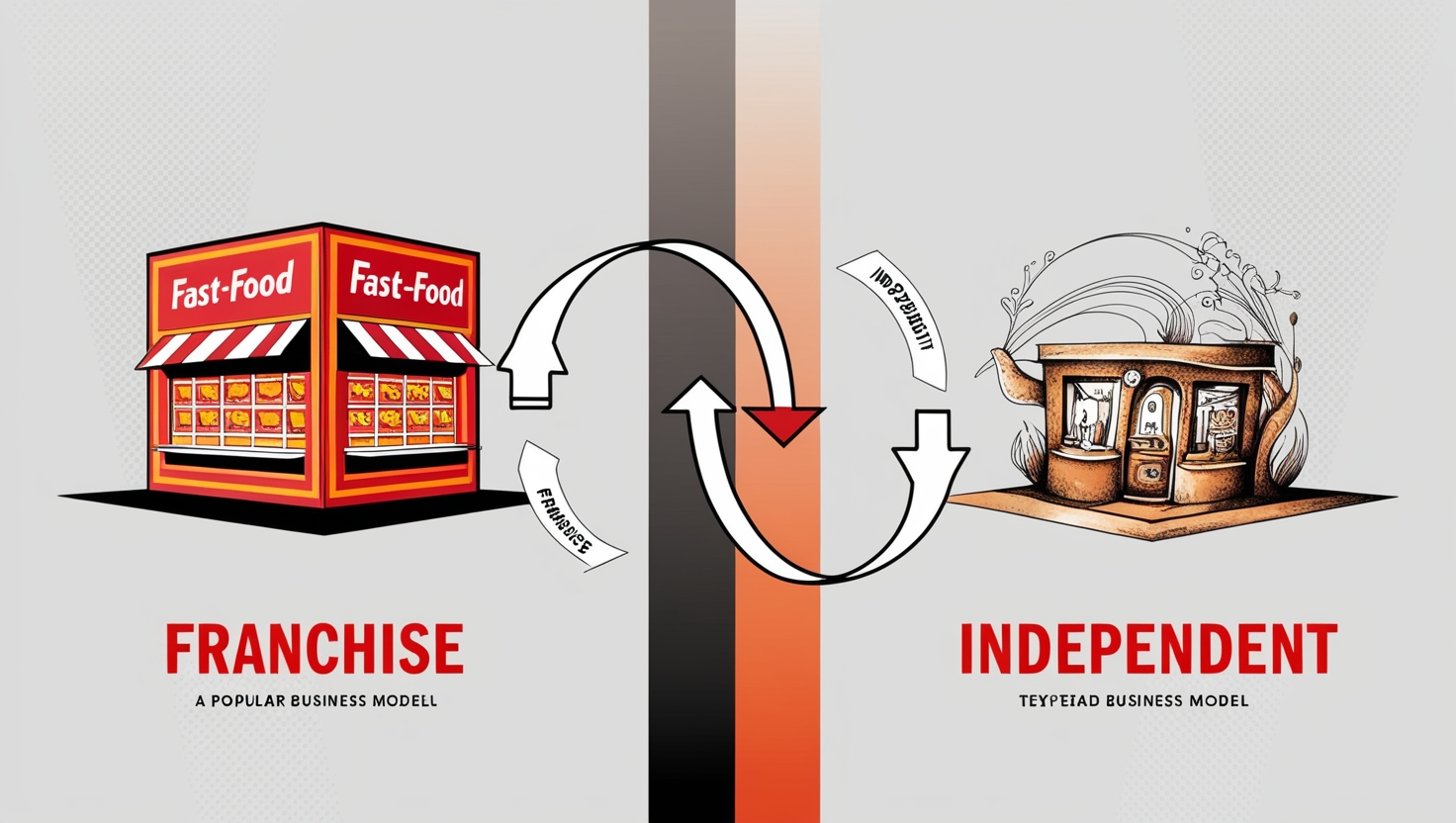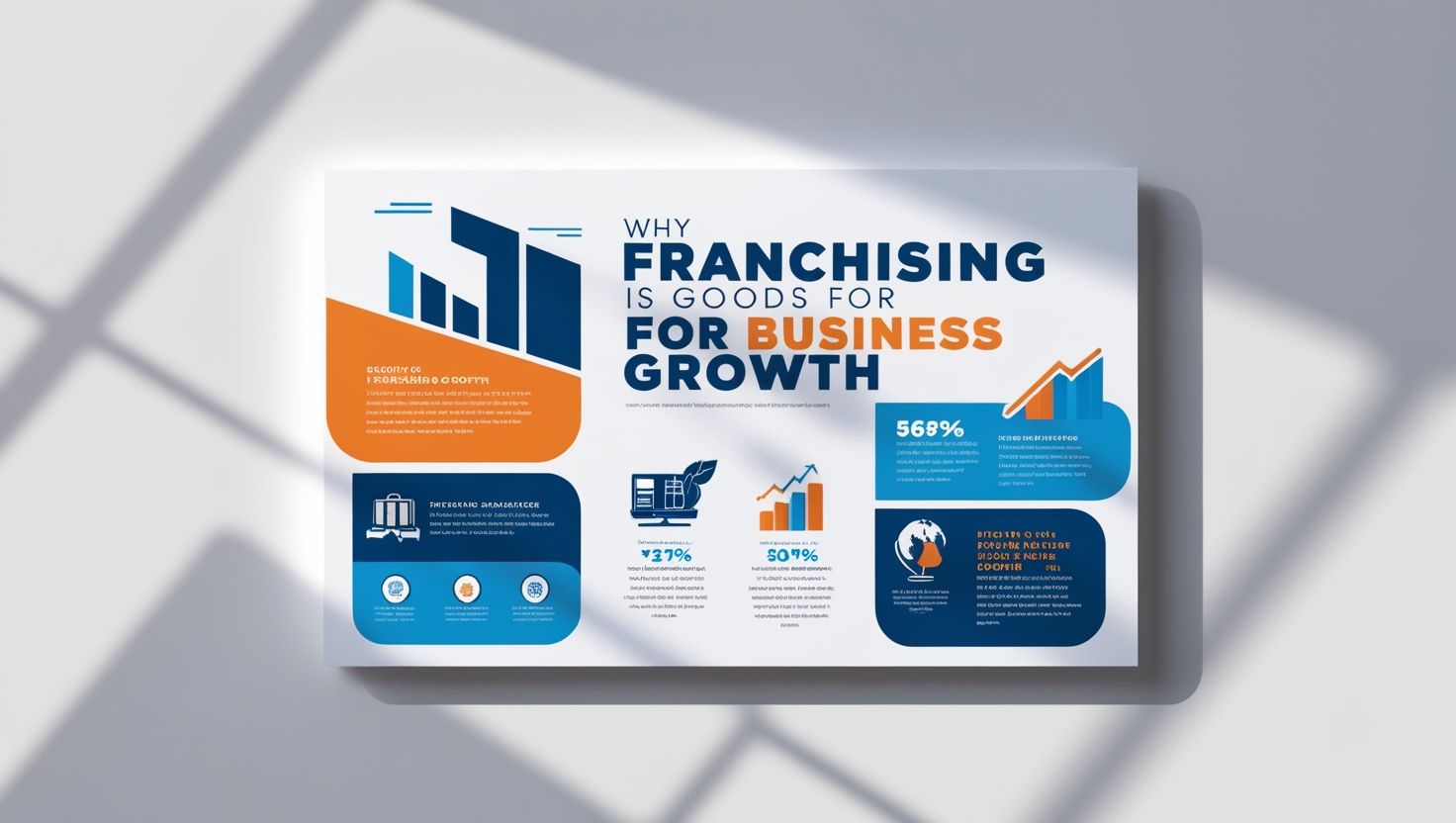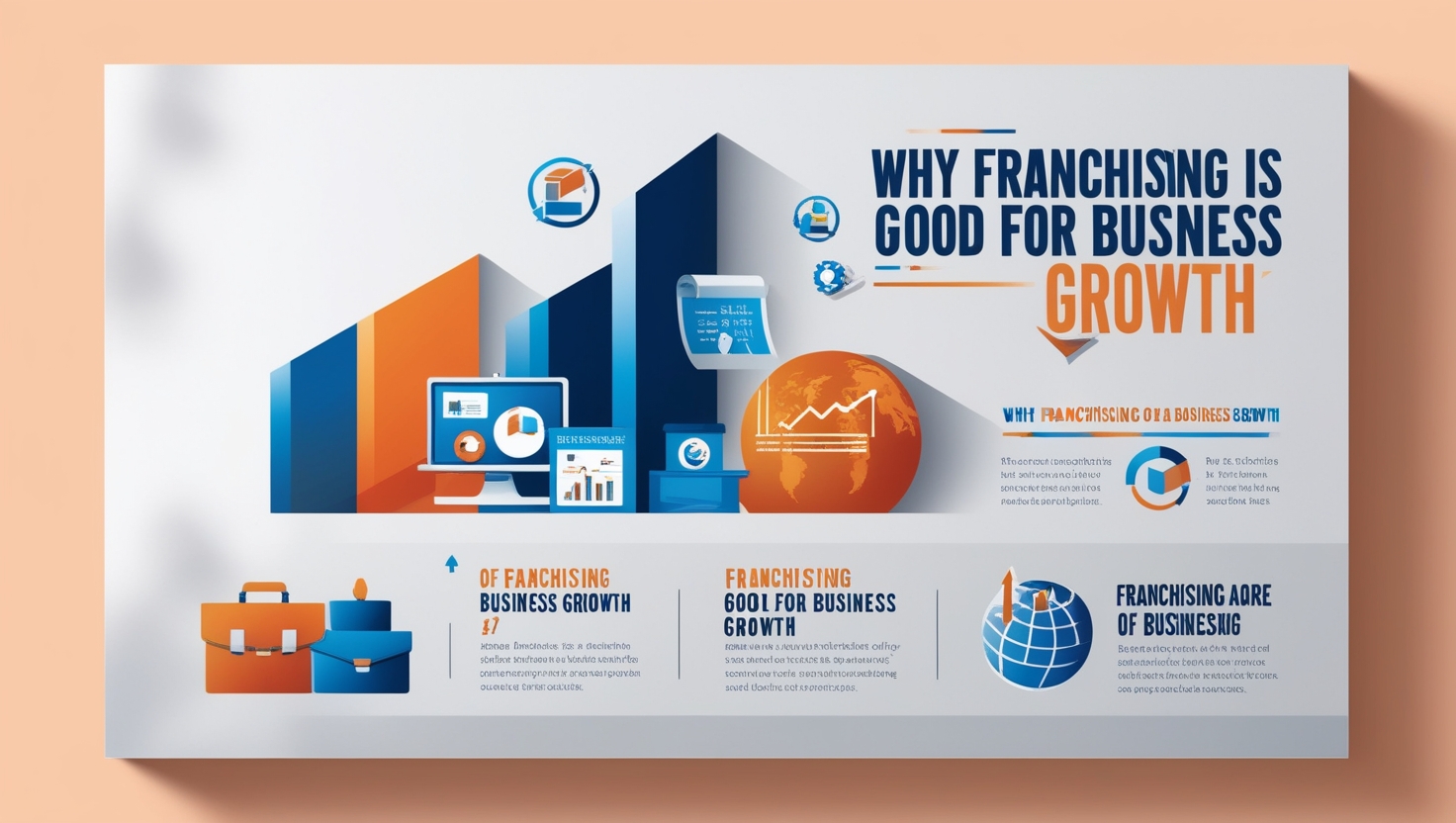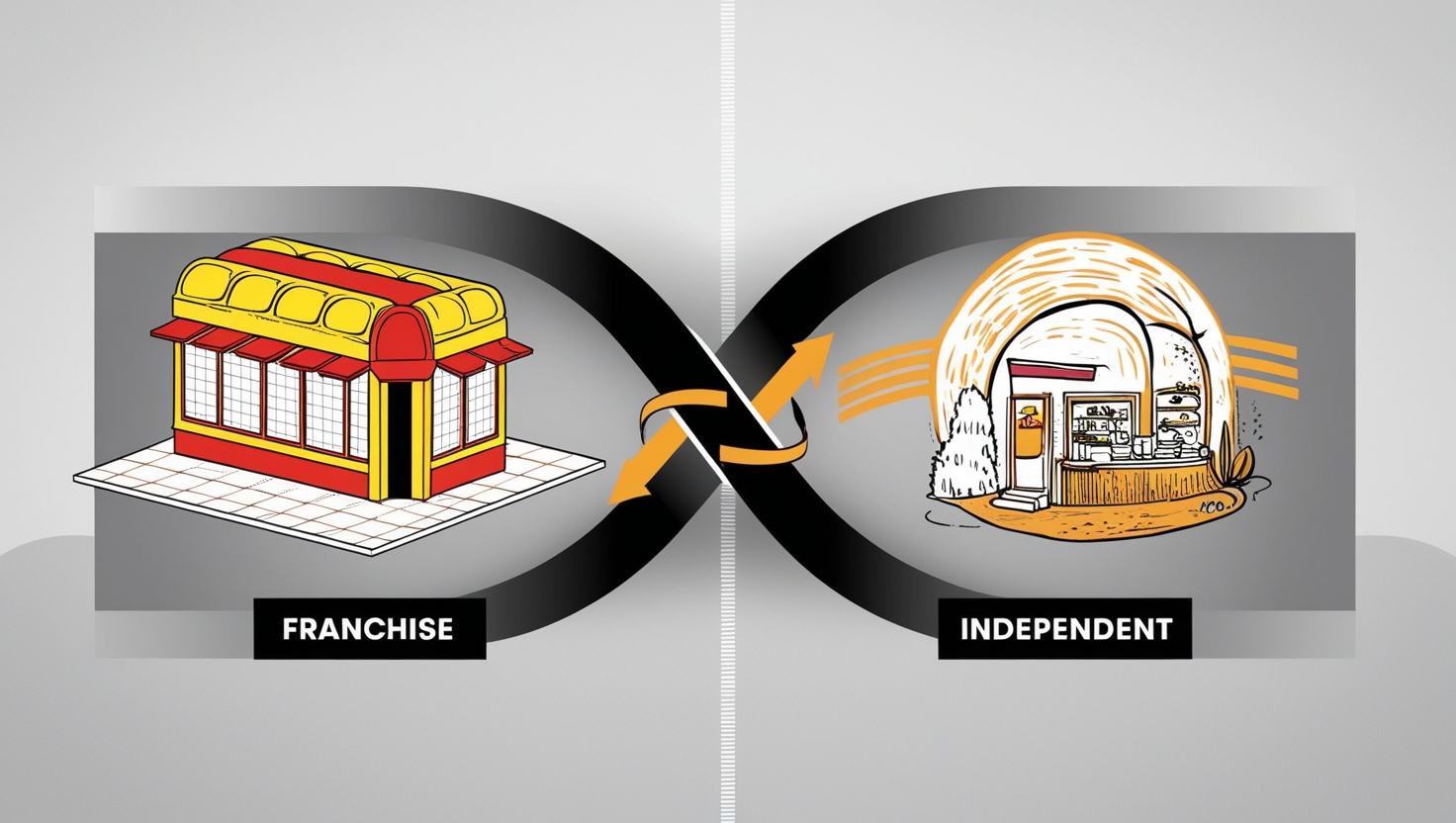Franchise vs Independent Business Model
In today’s dynamic business environment, entrepreneurs face a crucial decision when starting a business: Franchise vs Independent Business. Each model has its distinct advantages and challenges. Choosing the right one could shape your path to success. Whether you're a new business owner or looking to expand, this article provides an in-depth comparison to help you determine which model aligns with your goals.
Choosing the right business model is a critical decision for aspiring entrepreneurs and seasoned business owners alike. Two of the most popular models are franchising and independent business ownership. Both have their own unique advantages and challenges, and the best option largely depends on your goals, experience, and willingness to take on risk. In this article, we will thoroughly examine the franchise model versus the independent business model and help you decide which is the better fit for your growth.
Understanding the Franchise Model
A franchise is a business arrangement where an individual (the franchisee) purchases the rights to operate a business under the brand, systems, and support of an established company (the franchisor). Some of the most recognizable brands around the world, like McDonald's, Subway, and 7-Eleven, operate as franchises.


Why Franchising is Good for Business Growth

Operational Support: A key reason why franchising fosters business growth is the operational support provided by the franchisor. From location selection and supply chain management to marketing strategies, franchisors guide franchisees through the entire process. This support system ensures the franchisee focuses on running the business, without the need to handle every detail independently.
Economies of Scale: Franchisors often have strong relationships with suppliers and can negotiate better prices for their franchisees. These cost advantages are passed on to the franchisee, making it easier to run a profitable business compared to independent startups that have to negotiate their own contracts.
Training and Development: Franchisors provide comprehensive training, equipping franchisees with the necessary skills and knowledge to manage their business effectively. Independent business owners, on the other hand, often have to figure things out on their own through trial and error.

Franchising has long been recognized as a powerful model for business growth. It allows companies to expand their footprint without bearing the entire financial burden. A franchisee invests in a proven business model, while the franchisor provides branding, training, and support. But why is franchising such an effective growth strategy?
Proven Business Model: When you franchise, you're not reinventing the wheel. You are buying into a system that has already been tested and refined, minimizing risks and maximizing chances for success. This is particularly appealing to new entrepreneurs who may lack the experience or resources to navigate the unpredictable nature of independent startups.
Brand Recognition: One of the most significant advantages of franchising is instant access to a recognized brand. Building a brand from scratch can take years of effort and resources. However, as a franchisee, you benefit from the marketing power and established reputation of a well-known brand, giving you an immediate edge over independent competitors.
Franchise vs Independent Business Model : Which is better

The choice between a franchise and an independent business depends on several factors, including risk tolerance, personal autonomy, and long-term growth goals.
Franchise Model: Lower Risk, Higher Support
Risk Mitigation: Franchising offers a lower risk environment for new business owners. Since you are operating under a proven system, the risk of failure is reduced. Many entrepreneurs are drawn to franchising because they want a safer entry into business ownership.
Higher Initial Investment: However, it's essential to note that buying a franchise can require a substantial upfront investment. Franchise fees, royalties, and marketing contributions are standard. For some, the financial entry barrier may be a downside.
Less Autonomy: One of the trade-offs of franchising is that franchisees often have limited control over key decisions. The franchisor sets the rules regarding branding, product offerings, and operational procedures. This lack of flexibility can be frustrating for those who value creative freedom.

Complete Control: Independent businesses allow entrepreneurs to create a company from the ground up. You have complete autonomy over branding, operations, and strategic decisions. This level of control is appealing to those who want to build something uniquely their own.
Greater Risk: On the flip side, independent businesses carry higher risks. Since you are building everything from scratch, there is no guarantee that your concept will resonate with customers. Startups face challenges in brand building, customer acquisition, and managing operational expenses.
Potential for Innovation: Independent business owners have the freedom to innovate, experiment with new ideas, and pivot as needed. This level of flexibility can be a significant advantage if you thrive on creativity and adaptability.
Benefits of Franchising for Businesses

Franchising offers substantial benefits to businesses that are looking to expand and grow quickly. Here are the top reasons why franchising could be the ideal path for your business:
Scalable Growth: With franchising, businesses can expand without the capital-intensive process of opening company-owned locations. By leveraging the investment of franchisees, franchisors can grow their brand presence rapidly in different markets, both domestically and internationally.
Shared Risk: Unlike traditional expansion methods where the business owner bears the full financial burden, franchising shifts some of that risk to the franchisee. The franchisee invests their own capital, shares the operational risks, and takes on the responsibility of managing the day-to-day operations.
Faster Market Penetration: Franchising enables businesses to enter new markets more quickly than if they had to establish their own presence. Franchisees, who often have a deeper understanding of local markets, can help drive faster market penetration.
Motivated Partners: Franchisees are motivated owners who have invested their own money into the business. This level of personal investment typically translates into higher levels of commitment and drive to succeed, compared to salaried managers of corporate-owned locations.
Revenue Streams: Franchisors benefit from ongoing revenue streams, such as royalties and marketing contributions, which provide a steady cash flow. This allows businesses to reinvest in further development and innovation.
Check other sources of blogshttps://spartansboxing.com/blog/franchise-vs-independent-business-making-the-right-choice/
Business Growth Through Franchising


If you're an entrepreneur or business owner considering business growth, franchising can be a game-changer. Here's how franchising drives significant growth:
Market Expansion: Franchising allows businesses to enter new geographical locations without the burden of managing each site independently. This rapid expansion can lead to increased brand recognition and customer loyalty across diverse regions.
Increased Revenue: Franchise systems often experience higher overall revenue due to the sheer volume of new franchise locations opening. As more franchisees join the network, the business benefits from increased sales and royalties, which fuel future growth.
Strategic Partnerships: By creating strong franchisee relationships, a business can benefit from the collective power of a unified network. These partnerships create a sense of shared purpose and can result in more significant marketing efforts, operational efficiencies, and overall brand strength.
Innovation and Adaptation: Franchisees, being on the front lines of the business, often bring valuable insights and innovations that can improve the entire franchise system. Their feedback can help franchisors adapt and refine their offerings to meet changing customer needs.


One thought on “Franchise vs Independent Business Model: Which Is Better for Your Growth?”